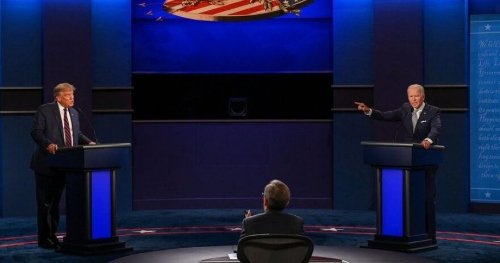What Presidential Debates Teach Us
Debates have played an integral part in the presidential election, in some countries it has become customary for presidential candidates to engage in debates. Much is written and spoken about them. Today we will be discussing the most prevalent format for presidential debates and why nonverbal communication plays an essential role in the same.
FIRST TIMERS DURING DEBATES
Debates are known for having started the use of rhetoric language that candidates have used over years. The first use of rhetoric was done by Carter when he spoke “Are you better off than you were four years ago?” or the more famous “There you go again” or Bush’s “Read my lips” that stayed with the voters.
Over the years the significance of debates has risen as the ones who do better in debates end up winning the election. There have been numerous instances wherein the candidates have improved themselves in the second and the third debates ensuring a win. In the first presidential debate of Ronald Reagan and Walter Mondale, Reagan lost. So in the second and third he bounced back and won both debates as well as the election, thus becoming the president
IMPORTANCE OF BODY LANGUAGE DURING DEBATES
Lets see what role body language plays in debates, does it create an impact on audience decisions, does only the body language of the speaker plays a role or does the body language of the person on the opposite side also matters. Below are a few examples of famous debates and the role that body language played in each.
Here is an example of the Presidential debate between Jimmy Carter and Gerald R Ford 1976. Audience preferred more positive or open body language of the debater, and not when the debater’s body language showed discomfort signals like compressed lips, looking away or voice changes. If you too appear for debates, try to be more observant of your own discomfort signals and what situations cause them, so you are prepared to handle them better.
Do you know, even your counterpart’s body language can change audience perceptions, for the speaker or even for them. In the debate between John Kerry and George W. Bush, Bush’s negative reactions while Kerry was speaking created a not so positive impact on the audience for Bush. Thus words are not always needed for creating an impact.
BILL CLINTON WON AGAINST GEORGE H. W. BUSH, 1992
One of the most astonishing observations in the 1992 debate of Bill Clinton and George H. W. Bush was that the audience could correctly differentiate between natural and deliberate charisma. In a study by Miller et al., (2001) found that the audience was able to understand and connect only when charisma was natural and not when they used charisma which was learnt. Thus even though one can learn tips and tricks of using body language but if they don’t look natural, audience can seldom connect with you.
HOW WE CAN HELP
Enhance your teaching impact with our tailored programs focused on improving non-verbal communication. Learn to build stronger connections with students, manage classrooms effectively, and boost student engagement. If you are looking to upgrade your body language skills, check out our online pre recorded courses on various topics that come with lifetime access. You can also explore our Signature Body Language Personal Coaching program Reach out to us on – 99309 41534.

































